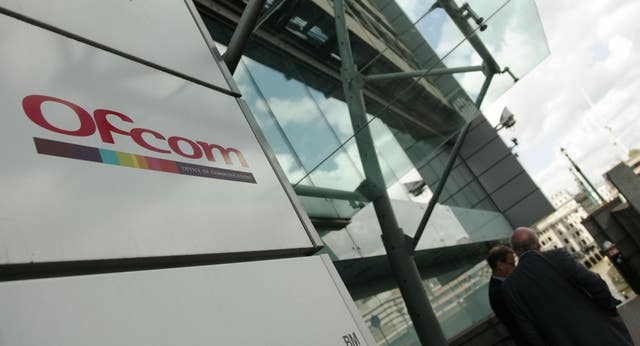
Nick Abbot 10pm - 1am
15 July 2022, 11:13

A row has broken out over plans to delay the long-awaited Bill until the autumn.
The Online Safety Bill’s passage through Parliament is set to be delayed until a new prime minister is in place in the autumn.
The decision has sparked a debate over the importance of the legislation, with some labelling the delay as a “devastating blow” for online safety while others call for a rethink over its approach.
Here is a closer look at the Bill and why it has become divisive.
– What is the Online Safety Bill?
Hailed as groundbreaking regulation of the tech sector, the aim of the Online Safety Bill is to introduce rules to social media and other user-generated content-based sites that compel them to remove illegal material from their platforms, with a particular emphasis on protecting children from harmful content.
In addition, the largest platforms – such as Facebook, Instagram and Twitter – will have to tackle named forms of “legal but harmful” content, which could include issues such as promoting self-harm or eating disorders.

– How would tackling that harmful content work?
Under the Bill, all platforms in scope will have a duty to find and remove illegal content, as well as have clear and robust terms and conditions in place.
Then for the largest platforms, the categories of legal but harmful material that need addressing would be agreed upon through secondary legislation by Parliament and tech firms would then need to clearly explain in their terms and conditions what is and isn’t acceptable on their site and enforce those rules.
The Bill says it would also protect free speech by exempting news content from the regulations, as well as protecting content defined as being of “democratic importance”.
Companies which breach these new rules face fines which could run into billions of pounds for the largest services or face being blocked.
All this would be overseen by communications regulator Ofcom, which is set to become the new regulator of the sector.
– What else is in the Bill?
The Bill would also require platforms to bring in so-called user empowerment tools to give adult users more control over who and what they interact with.
Sites showing pornographic material will be required to verify the age of users to prevent children from accessing it.
And platforms will need to take action to minimise the chances of fraudulent advertising being published on their service.

– So why has it been controversial?
The Bill has been at the centre of a tug-of-war between online safety campaigners on one side, who believe more needs to be done to protect people, especially children, from the swathes of harmful content online, and, on the other side, free speech campaigners who see the Bill as an enabler to online censorship.
Having been in the making for more than five years, it has gone through several different Governments and ministers overseeing it, meaning it has been expanded and re-shaped on multiple occasions as priorities and key concerns have changed.
The result is a Bill that campaigners on all sides are not happy with, either because it is taking too long to implement, is seen as too broad or too strict.
Child safety campaigners have raised concerns that children will still be at risk of online sexual abuse, and more needs to be done to tackle online networks of abusers.
Meanwhile, free speech campaigners say the threat of large fines and the use of the legal but harmful mechanism will lead to platforms removing any controversial content over fears they could be punished for it.
In addition, some argue that allowing the tech giants to update their own terms and conditions will give them too much power over what is and isn’t policed.
Concerns have also been raised by some about the power of the Secretary of State at the Department for Digital, Culture, Media and Sport (DCMS) having too much power over Ofcom in its role as regulator.
– Has there been a response to these concerns?
Before the Bill was delayed a number of amendments had been tabled to address some of the concerns raised, however, a number of them only alarmed campaigners on all sides further.
A Government amendment which could give Ofcom the power to compel platforms to introduce technology to find and tackle child sexual abuse was heavily criticised by free speech campaigners who argued it could to used to break encryption and could lead to mass surveillance of private messages.
Another proposed amendment, aimed at boosting free speech and press freedom by preventing platforms from taking down posts by recognised news publishers before offering them an appeal process, was dismissed by campaigners as a way of enabling disinformation to spread.
A coalition of civil society groups argued the protections would allow state-backed propagandists to pose as legitimate news publishers and keep harmful content online, turning the UK into a “disinformation laundromat”.
Some groups have now welcomed the delay to the Bill as a chance to “rethink” aspects of it.